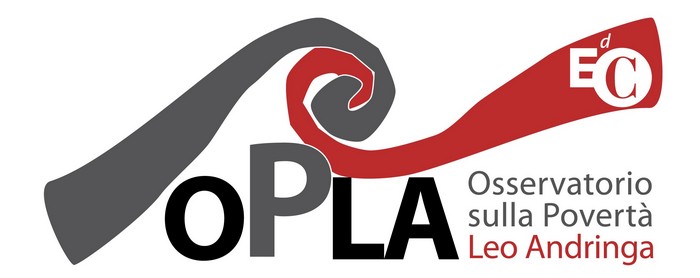#OPLAStories - From Colombia, Elizabeth's story provides us good reason for one of the most important criteria of the EoC's anti-poverty initiatives, starting with communion.
Tainã Santana from the OPLA Team
Medellín, Colombia. Elizabeth, mother of Martín (3) and Miguel (7 years old), lives in a small village called Pedregal. Last year they were going through a difficult situation at home, and Elizabeth was unable to feed her family and pay for her children's school supplies. They submitted a request for support through one of our local workers, which was immediately accepted by OPLA as an opportunity to walk by their side during that difficult time.
Last year we published an article in this column where we talked about people who ‘take the first step of gratuitousness towards others’. From the experience of the Economy of Communion and AMU, working with people who go through poverty based on an approach of communion, we perceive that there is a key moment in the lives of these people, in their journey to overcome poverty: when they realise that they are not simply being “helped” by someone who is “above” them, but that they are also able to give and put themselves at the service of the people around them. But what does that article have to do with Elisabeth's story?
A few days ago Elizabeth wrote to us directly to share her experience. She tells us that with the help she received from the EoC she was able to buy food (vegetables, cereals, dairy products, meat) for all members of the family, as well as school supplies for her son (exercise books, pencils, erasers). And up to this point everything is in line with our expectations, as the requested support was actually intended to serve this purpose. But then Elizabeth goes on to surprise us:
‘We wanted to help another family and bought diapers for a mother who needed them’.
Certainly, the difficult situations in which she found herself had not been resolved, and the needs of Elizabeth and her family had not ended, but the willingness to get involved and do her part came naturally to her, without anyone imposing it on her. Indeed, this is one of the conditions for true gratuitousness to take place: freedom of choice. This gives rise to reciprocity, which, contrary to what a first thought might suggest, goes far beyond simply giving back to the same person from whom one has received, and takes the form of a real protagonism in one's own history and in the construction of a more just society.
Another element present in the letter is the awareness of where the support comes from. Elizabeth writes:
‘We are very grateful to all the families who make sure that this aid reaches other families... in our case it came as a blessing at a time when we really needed it.’
Here is a specific aspect of the EoC: the emergence of an awareness that that support does not come from the unnecessary excess of wealthy people who do not need it, but from other families who, like everyone else in the network, try to do their part. 
Such awareness breeds a sense of responsibility, and invites all EoC members to implement communion. This is not philanthropy. In fact, unlike in many – undoubtedly also important and necessary – philanthropic organisations, the relationship between the different members of the network is fostered and encouraged, in order to grow the awareness that they are all potential inducers of communion. Of course, it is not taken for granted that the family that Elizabeth helped will do the same for others, and that is precisely the beauty of the freedom that makes everyone the protagonist of their own story.
Credits foto: Immagine di Medellin di Michael Pointner da Pexels:








